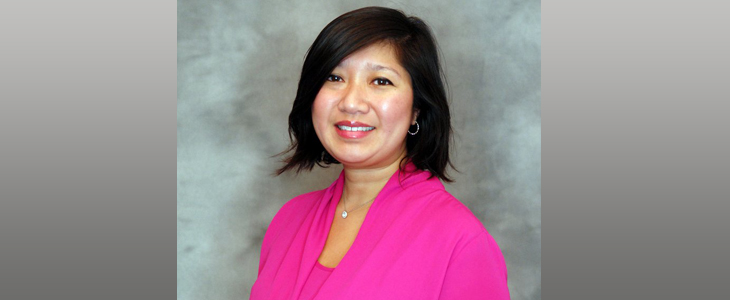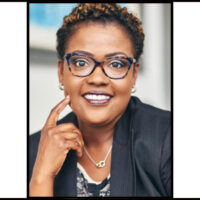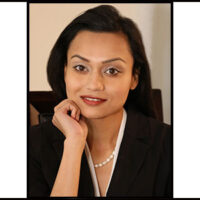
ACAMS Today had the opportunity to speak with Angel Nguyen, vice president of the Global Financial Crimes Compliance – Financial Intelligence Unit (FIU) at American Express, where she was part of the re-envisioning and rebuilding of the FIU in 2008, about women in the workplace, partnerships and AML investigations.
Prior to joining American Express, Nguyen served as a New York County assistant district attorney where she prosecuted a plethora of cases, including street level violent crimes, sex crimes, and long-term identity theft and cybercrime investigations.
Today, the FIU at American Express is the centralized global team (over 300 people supporting the company in over 40 countries) responsible for the end-to-end suspicious activity report process (monitoring, investigations and reporting), sanctions screening, politically exposed persons/ enhanced due diligence reviews and anti-corruption payments monitoring.
Nguyen's current mission is to bring best-in-class tools and technology to the virtual desks of all compliance personnel at all levels to maximize capabilities and gain meaningful intelligence in their areas of expertise.
She has been fortunate enough to have participated in several ACAMS programs, including the Las Vegas and Hollywood conferences and the development of the Advanced CAMS-FCI certification program.
ACAMS Today: This month we celebrated International Women’s Day. How has the workplace changed for today’s career woman as compared to a decade ago?
Angel Nguyen: A decade ago, I was being called “prosecutrix” by a male judge while I was on trial prosecuting a felony domestic violence case. Today, more women are being called on to serve in leading roles in all industries, and we are seeing more women in the workplace while their partners are at home managing the household. Companies are making an effort to provide amenities that address women’s needs (such as longer paid leave for working mothers, daycare options in or near the workplace and focus groups specifically addressing women’s interests). While there has been progress made in finding true equality for women in the workplace, I think we still have room to continue to balance the scales.
AT: How do you see the workplace changing for women a decade from now?
AN: I hope to see a world where it’s not just about the number of women in the workplace or meeting an unspoken quota to ensure that there are enough women in a workplace, but that there is full acceptability and expectation that women would be in the work place. This means that there is more “parental leave” not just “maternity leave” or where the primary caregiver is not a default to the mother or where the term “prosecutrix” (while it may be technically a correct term) is not part of our vocabulary.
AT: In your current role, you lead the AML investigations’ teams, what are the most important lessons and/or best practices you and your team have learned through the numerous investigations you have conducted?
AN: Investigations can be tedious and long, especially in the private sector where you often do not get to see it through to an end result. With that said, we are lucky to be in a field where there is a bigger cause to what we are doing day in and day out. Not only are we part of ensuring that our financial institution is safe from bad actors, but we enable law enforcement to find leads where they might normally not have visibility, so never assume they know what you know. They don’t. This is huge. So, the message to the team is really this: Most of us are in this profession for the same reasons— to find the bad guys, protect the company and help law enforcement. Do what you do best, so that those you help and protect can do what they do best. Don’t let up for a minute, and remember the reason you are doing what you’re doing and not that you are doing it.
AT: What has helped you create partnerships with local law enforcement and what steps are necessary to foster and maintain productive partnerships between the private and public sectors?
AN: I think the answer for both is the same. As with any relationship, finding common ground and showing that you understand (or want to understand) the problem that the other party is facing is key. This will allow you to have impactful interactions, and it doesn’t have to be often. For example, with law enforcement, nine times out of 10 you are having a conversation with them because there is information you have that you think is helpful to them. Tell them why from their point of view, show them how it links and fits into their purpose, be it an investigative lead, identifying charges for prosecution, or finding a suspect. The same could be said for peers in your industry or field. Most professionals are facing the same issues and having the same conversations. Don’t be afraid to reach out and speak to your colleagues across the industry to benchmark. You won’t only gain more insight into a particular issue, but you’ll more than likely find a great contact and friend that can act as a continued resource.
AT: In an earlier conversation we had, you mentioned your past role as co-chair of the Pro Bono Committee for American Express. Could you expand on what your role entailed?
AN: Serving as a co-chair for the Pro Bono Committee allowed me to bring all of my interests and passions together into one role. I was able to tap into my legal background while finding ways to help the community and organize a movement, really, to cultivate a culture in corporate America where pro bono and community service is part of the its fabric. It is also extremely rewarding to help my colleagues in finding ways to further causes they strongly support and are passionate about. All in all, there is nothing more rewarding in seeing the sense of accomplishment in someone’s face when they have successfully completed a pro bono matter or the sense of relief in a client’s entire body when they’ve received the assistance they need to make their situations a bit better.
AT: What is the best career advice you have received?
AN: Be true to yourself. This will allow you to make career decisions that are right for you, not the person next to you, ahead of you, or behind you. This will also ensure that you can move beyond any perceived limitations you (or others) may have inadvertently set for yourself. When I was in high school and college, I thought I was going to medical school. By the time I left college, I decided to go to law school with a focus on environmental law. By the time I graduated from law school, I was accepted to join the New York County District Attorney’s Office and I thought I was going to dedicate my career to focus on investigating and prosecuting sex crimes. However, by the time I left the NYCDA, I was heavily involved in long-term financial and cybercrimes; and now, I am running a program (in corporate America) involving operational, business and compliance strategies. The opportunities are endless…and limitless!
Editor’s note: ACAMS Today will be featuring Women in AML throughout the month of March in celebration of International Women’s Day.










